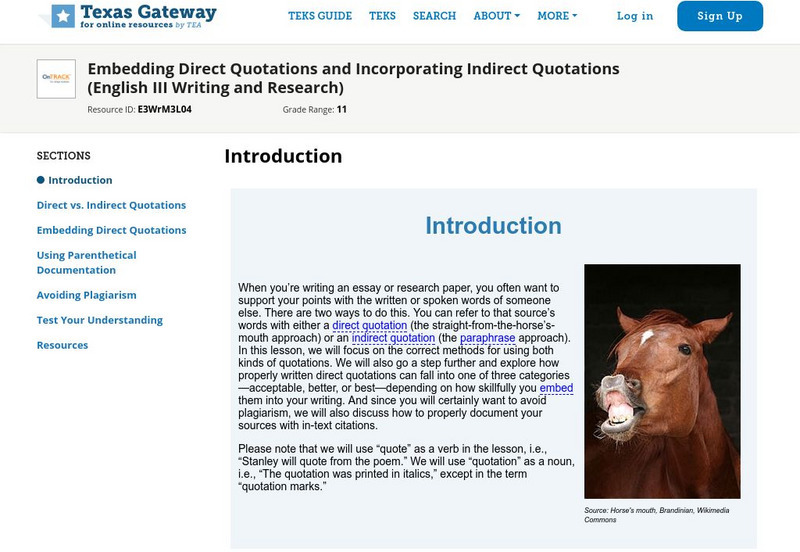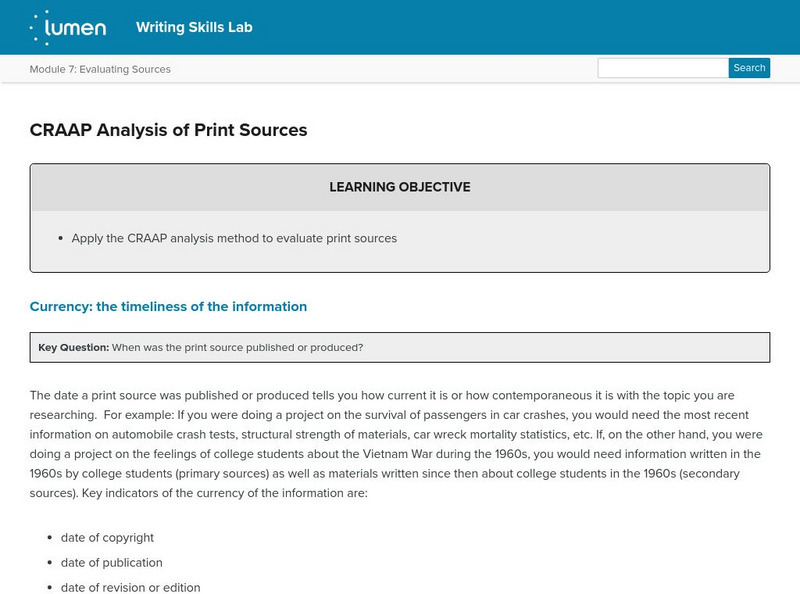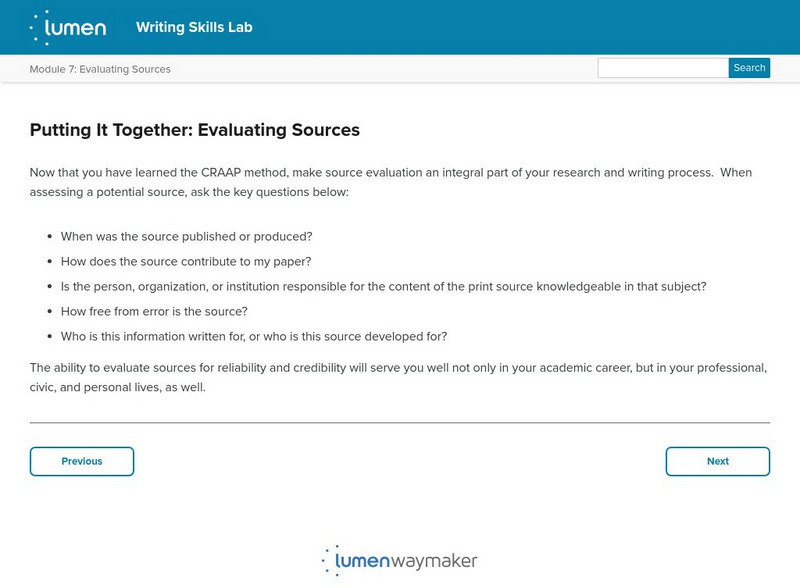University of North Carolina
University of North Carolina: Writing Center: Handouts: Evidence
What kinds of evidence best support the points you make in a paper? Where can you find the evidence you need? This handout answers all these questions and more, including the difference between primary and secondary sources. You'll also...
Online Writing Lab at Purdue University
Purdue University Owl: Avoiding Plagiarism
Plagiarism is a serious offense in many educational settings. Plagiarism and copyright laws are reviewed here. Activities to avoid plagiarism are also provided through links. W.9-10.8 Sources, W.11-12.8 Sources/Integrate/Cite;...
Online Writing Lab at Purdue University
Purdue University Owl: Using American Psychological Association (Apa) Format
Extensive information on how to use the American Psychological Association (APA) format for citations. Information is provided on general format, referring to other works, reference list, notes, and examples in the APA format. W.9-10.8...
Online Writing Lab at Purdue University
Purdue University Owl: Mla Formatting and Style Guide
Extensive examination of the Modern Language Association (MLA) format of writing papers, making reference to the works of others, citations, and notes. W.9-10.8 Sources, L.9-10.3a Standard Format; CCSS.ELA-Literacy.WHST.6-8.8 Gather...
Other
Oslis: Learn How to Do Research, Find Information, Cite Sources
Excellent site outlining each step for Internet research at the middle school and secondary levels. This site focuses on a variety of information literacy topics, from how to research, find and evaluate information, and cite sources....
Texas Education Agency
Texas Gateway: Documenting Sources and Writing a Bibliography/works Cited
This lesson focuses on documenting research sources and writing a bibliography or Works Cited page. It discusses when and how to document your sources using MLA style. W.9-10.8 Sources, L.9-10.3a Standard Format
Texas Education Agency
Texas Gateway: Embedding Direct Quotations and Incorporating Indirect Quotations
This lesson focuses on the correct methods for using both direct and indirect quotations. We will explore how properly written direct quotations can fall into one of three categories: acceptable, better, or best, depending on how...
Lumen Learning
Lumen: Building Credibility Through Source Integration
Well-integrated sources build credibility in several ways: Source material adds evidence and support to your argument, the signal phrase highlights the reputation and qualifications of the source, and effective citation makes it easy for...
Other
Santa Rosa Library: How to Evaluate Information Resources
Tips and information about how to evaluate resources, both print and electronic. Includes information about source authority, purpose, objectivity, currency, completeness, and relevance. It includes a printable handout (top right)with...
Sophia Learning
Sophia: In Text Citations: Lesson 6
This lesson introduces in-text citations and how to embed them in text. It is 6 of 7 in the series titled "In-Text Citations." W.9-10.8 Sources
Lumen Learning
Lumen: Evaluating Sources: Craap Analysis of Print Sources
This activity focuses on evaluating print sources using CRAAP Analysis: Currency, relevance, authority, accuracy, and purpose. A practice exercise is included. W.9-10.8 Sources
Lumen Learning
Lumen: Using Sources: Mla Works Cited
This lesson focuses on creating a Works Cited page using the MLA format including page numbers, title, spacing, alphabetical order, and hanging indents. An example is provided. Click the Next button at the bottom right for detailed "in...
Lumen Learning
Lumen: Using Sources: Using Online Citation and Reference Tools
This lesson focuses on using online citation tools and being aware that they make mistakes that must be corrected. W.9-10.8 Sources
Lumen Learning
Lumen: Evaluating Sources: Putting It Together: Evaluating Sources
This is a summary of evaluating sources using the CAARP analysis method including questions to ask yourself about each source. W.9-10.8 Sources















